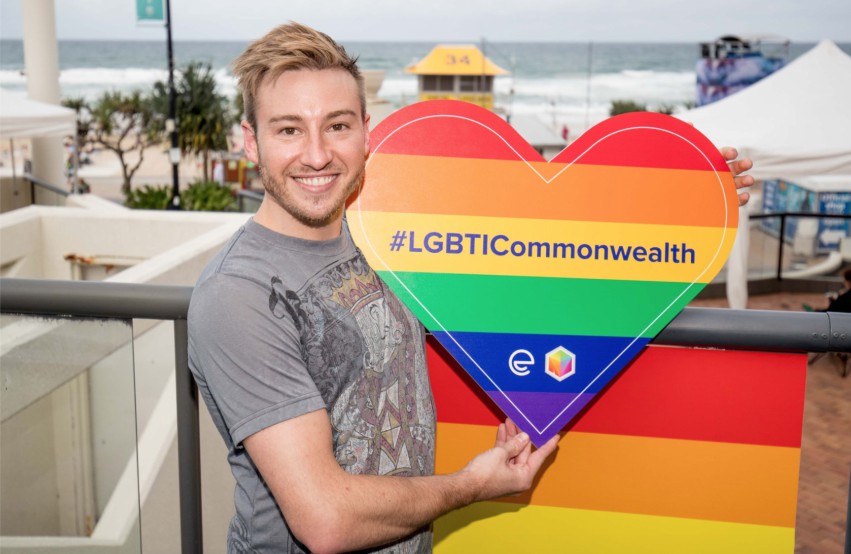Olympic gold medallist diver Matthew Mitcham at Pride House in Australia. | Photo: Facebook
LGBT+ people have traditionally been pushed to the margins of sport. Even in countries that appear more accepting, negative stereotypes and the threat of intrusion or exposure can make sport seem unwelcoming and even hostile.
Large international sporting events present the opportunity to connect with people from different cultures and backgrounds.
The Pride House movement was started at the the 2010 Vancouver Winter Olympic and Paralympic Games to ensure that LGBT+ people and culture are not excluded from this dialogue.
Modelled after a traditional hospitality house, Pride House venues welcome LGBT+ athletes, fans and their allies during sporting events. They are safe spaces to view competitions, experience the event with others and build a relationship with mainstream sport.
Following a successful Pride House at the Commonwealth Games in Glasgow in 2014, Pride House International has arrived in Australia for first time at the Commonwealth Games 2018 on the Gold Coast.
‘Pride House is important as it highlights LGBT+ human rights within the Commonwealth. It will draw attention to LGBT+ issues through hosting Exhibitions and Events that raise awareness and education,’ said Pride House Gold Coast’s project director, Matt Hall.
The Commonwealth legacy
LGBT+ rights in the Commonwealth are immensely varied. Nations like Canada were among the first to introduce same-sex marriage. But 37 out of 72 countries that criminalise homosexuality are Commonwealth states.
16 Commonwealth nations also criminalise female homosexuality, with 90% of Commonwealth citizens living in states that criminalise consensual same-sex activity.
But things are slowly improving.
Since the last Commonwealth Games in Glasgow, the number of Commonwealth countries that criminalise homosexuality has fallen from 42 to 37, with Belize and the Seychelles among the most recent nations to decriminalise.
In 2017, The Commonwealth Equality Network (TCEN) became the first and only LGBT+ organisation to receive Commonwealth accreditation, putting the human rights of LGBT+ people on the international agenda.
Yet in some Commonwealth nations, such as Nigeria, Uganda and Brunei, life has arguably become more challenging for LGBT+ people.
In order to change the Commonwealth, LGBT+ people must be active in all Commonwealth spaces, including sporting events.
Visibility and education are key to engaging people’s knowledge of the Commonwealth and how it treats LGBT+ people.
There are eleven openly LGBT+ athletes at this year’s games, which is the highest number ever. They include; Canadian pole vaulter Shawn Barber, South African runner Caster Semenya, Kiwi cyclist Linda Villumsen and English Diver Tom Daley.
Safe spaces are crucial
Scotland’s Scott Cuthbertson is representing TCEN at the Commonwealth Games 2018. He believes that having a safe space for LGBT+ people at the games is extremely important.
‘To have a Pride House, a place where LGBT+ people can go and watch the games, is really important. It is not just about the message it sends out about LGBT+ people in sport, but also because it can explore human rights issues.
‘Considering the record of the Commonwealth on LGBT+ issues, it is vital to have an LGBT-friendly space at the Commonwealth Games.
‘To create change, we have to try to engage people across society. Sport is something that brings people together. Even if you’re not LGBT+, sport can break down barriers and it can change attitudes.’
This post was originally published at Kaleidoscope Trust and has been republished here with permission.







